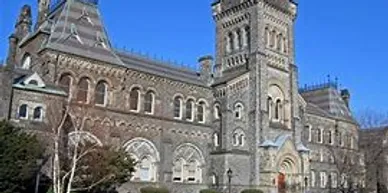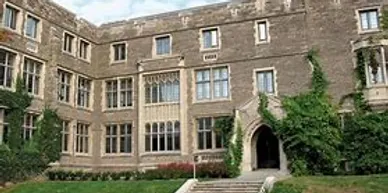Canada
"Study in Canada: Your Gateway to World-Class Education"
Study in Canada
How to apply yourself?
Here is a more detailed step-by-step guide for Indian students on how to apply for international student graduate admissions in top Canadian universities:
Research
The first step in the process is to research the different universities and programs available in Canada that suit your interests and academic background. You can find a comprehensive list of Canadian universities on the website of the Association of Universities and Colleges of Canada (AUCC). The website also provides links to individual university websites where you can find detailed information about the different programs they offer.
Meet the eligibility criteria
Once you have identified the universities and programs that interest you, you need to check if you meet their eligibility criteria. Generally, Canadian universities require a minimum of 3.0 GPA on a 4.0 scale, equivalent to a B grade in India. However, some universities and programs may have higher GPA requirements. You can find specific eligibility requirements on the university websites or on the Study in Canada website.
Language Proficiency
Most universities in Canada require international students to demonstrate proficiency in English or French, depending on the language of instruction for the program. You can take English language proficiency tests such as TOEFL or IELTS, or French language proficiency tests such as TEF or TCF. You can find more information on language requirements on the university websites or on the Study in Canada website.
Applying for Admission
Once you have identified the programs and universities that interest you and meet their eligibility criteria, you can start the application process. You can apply online through the university's website or through the common application portal of the province where the university is located. In most cases, you will be required to submit your academic transcripts, English/French proficiency test scores, statement of purpose, resume, and letters of recommendation.
Accepting the Offer
If you are accepted to a program, you will receive an offer of admission from the university. You will be required to confirm your acceptance by paying a deposit fee, which typically ranges from CAD 500 to CAD 2,000, depending on the university and program.
Applying for a Study Permit
n order to study in Canada as an international student, you will need to apply for a study permit. You can apply online through the Government of Canada's website. You will need to provide your letter of acceptance, proof of funds to cover your tuition and living expenses, and proof of your language proficiency. The study permit application fee is CAD 150, which is approximately INR 8,500.
Accommodation
Once you have confirmed your acceptance and received your study permit, you can start looking for accommodation. Most universities have on-campus residence halls or apartments for international students, which can be convenient and affordable. You can also look for off-campus accommodation through websites such as RentFaster or PadMapper. The cost of accommodation varies depending on the city and type of accommodation, but you can expect to pay between CAD 500 to CAD 1,500 per month.
Cost of Living
The cost of living in Canada varies depending on the city and the lifestyle you choose. As mentioned earlier, you can expect to spend approximately CAD 15,000 to CAD 20,000 per year, which is approximately INR 850,000 to INR 1,150,000. You can find more information on the cost of living in different cities on the Numbeo website.
Scholarships and Internships
There are various scholarships and internships available for international students in Canada. You can find information on scholarships on the university websites or on the Study in Canada website. You can also look for internships through websites such as Indeed or LinkedIn.
Part-Time Jobs
International students in Canada are allowed to work part-time on-campus during their academic term and full-time during scheduled breaks such as summer, winter, and spring breaks. However, it is important to note that working off-campus without proper authorization is illegal and could result in serious consequences, including deportation.
Here are some resources and information on part-time jobs for international students in Canada:
- Job Search Websites : Many job search websites in Canada cater specifically to international students, such as Indeed, JobBank, and SimplyHired. These websites allow you to search for jobs based on your location, skills, and interests.
- Work-Study Programs : Some Canadian universities offer work-study programs that provide on-campus employment opportunities to students with financial need. These programs are designed to help students cover the cost of their education while gaining valuable work experience.
- Networking : Networking is key to finding part-time job opportunities in Canada. Attend job fairs, join professional associations, and reach out to your professors and classmates for potential job leads.
Visa Regulations
As an international student, you will need to obtain a Social Insurance Number (SIN) in order to work in Canada. You can apply for a SIN through Service Canada. It is also important to be aware of the restrictions on the number of hours you can work while studying in Canada.
Internships
Many Canadian universities and companies offer internship opportunities to international students, which can be a great way to gain work experience and potentially secure a job offer after graduation. It is important to keep in mind that part-time jobs should not interfere with your studies, and you should prioritize your academic commitments. Also, before accepting any job offers, make sure that you are legally allowed to work and that the job aligns with your career goals and interests.
Top Universities in Canada

McGill University
Specializations: Arts & Humanities, Engineering & Technology, Life Sciences & Medicine, Natural Sciences, Social Sciences & Management. QS 2023 World Rank: 31. Location: Montreal, Quebec.

University of Toronto
Specializations: Arts & Humanities, Engineering & Technology, Life Sciences & Medicine, Natural Sciences, Social Sciences & Management. QS 2023 World Rank: 34. Location: Toronto, Ontario.

University of British Columbia
Specializations: Arts & Humanities, Engineering & Technology, Life Sciences & Medicine, Natural Sciences, Social Sciences & Management. QS 2023 World Rank: 47. Location: Vancouver, British Columbia.

University of Alberta
Specializations: Arts & Humanities, Engineering & Technology, Life Sciences & Medicine, Natural Sciences, Social Sciences & Management. QS 2023 World Rank: 110. Location: Edmonton, Alberta.

University of Montreal
Specializations: Arts & Humanities, Engineering & Technology, Life Sciences & Medicine, Natural Sciences, Social Sciences & Management. QS 2023 World Rank: 116. Location: Montreal, Quebec.

McMaster University
Specializations: Arts & Humanities, Engineering & Technology, Life Sciences & Medicine, Natural Sciences, Social Sciences & Management. QS 2023 World Rank: 152. Location: Hamilton, Ontario.

University of Waterloo
Specializations: Arts & Humanities, Engineering & Technology, Life Sciences & Medicine, Natural Sciences, Social Sciences & Management. QS 2023 World Rank: 154. Location: Waterloo, Ontario.

Western University
Specializations: Arts & Humanities, Engineering & Technology, Life Sciences & Medicine, Natural Sciences, Social Sciences & Management. QS 2023 World Rank: 172. Location: Ontario.

University of Ottawa
Specializations: Arts & Humanities, Engineering & Technology, Life Sciences & Medicine, Natural Sciences, Social Sciences & Management. QS 2023 World Rank: 237. Location: Ottawa, Ontario.

University of Calgary
pecializations: Arts & Humanities, Engineering & Technology, Life Sciences & Medicine, Natural Sciences, Social Sciences & Management. QS 2023 World Rank: 242. Location: Calgary, Alberta.

Queen's University
Specializations: Arts & Humanities, Engineering & Technology, Life Sciences & Medicine, Natural Sciences, Social Sciences & Management. QS 2023 World Rank: 246. Location: Kingston, Ontario.

Dalhousie University
Specializations: Arts & Humanities, Engineering & Technology, Life Sciences & Medicine, Natural Sciences, Social Sciences & Management. QS 2023 World Rank: 308. Location: Halifax, Nova
Top 30 Global Universities in Canada
List of 30 top Canadian Universities
- McGill University, Montreal, Canada, QS 2023 Rank: 31.
- University of Toronto, Toronto, Canada, QS 2023 Rank: 34.
- University of British Columbia, Vancouver, Canada, QS 2023 Rank: 47.
- University of Alberta, Edmonton, Canada, QS 2023 Rank: 110.
- Université de Montréal, Montreal, Canada, QS 2023 Rank: 116.
- McMaster University, Hamilton, Canada, QS 2023 Rank: 152.
- University of Waterloo, Waterloo, Canada, QS 2023 Rank: 154.
- Western University, London, Canada, QS 2023 Rank: 172.
- University of Ottawa, Ottawa, Canada, QS 2023 Rank: 237.
- University of Calgary, Calgary, Canada, QS 2023 Rank: 242.
Frequently Asked Questions
Indian students can apply to Canadian universities through the online application system of each university. They will need to provide transcripts, English language proficiency test scores, and other documents as required by the university and program. Some universities may also require a personal statement, letters of recommendation, or other additional materials. Application fees can vary, but typically range from CAD 100 to CAD 150 per program.
Application processing times can vary depending on the university and program. Generally, universities aim to process applications within four to six weeks of receiving all required documents.
Some of the popular programs among Indian students include business, engineering, computer science, and health sciences. However, there are a wide variety of programs available at Canadian universities. You can explore programs and universities on the official Study in Canada website:
https://www.educanada.ca/study-plan-etudes/index.aspx
https://www.universitystudy.ca/
https://future.utoronto.ca/apply/apply-online/
Some programs may require entrance exams such as the GRE, GMAT, or MCAT. However, this varies depending on the program and university. Indian students may also need to demonstrate English language proficiency through tests such as IELTS or TOEFL.
The admission requirements for Canadian universities vary depending on the university and program. Generally, students are required to provide their academic transcripts, English language proficiency test scores (such as TOEFL or IELTS), letters of recommendation, and a personal statement. Some programs may require additional documents such as a portfolio or writing samples. It is important to check the specific admission requirements for each university and program before applying.
Reference URL:
University of British Columbia admission requirements: https://you.ubc.ca/applying-ubc/international-high-school-students/international-credentials/
University of Toronto admission requirements: https://future.utoronto.ca/apply/requirements/international-high-school/
McGill University admission requirements: https://www.mcgill.ca/applying/requirements/international
Many Canadian universities offer scholarships and bursaries specifically for international students. Some scholarships are merit-based, while others are based on financial need or other criteria. For a list of scholarships available to international students, please visit: https://www.scholarshipscanada.com/Scholarships-for/International-Students
Many Canadian universities offer scholarships to international students, including those from India.
The scholarships are offered by the universities, the Government of Canada, and private organizations. Some scholarships are merit-based, while others are need-based or program-specific. The scholarship amount varies depending on the program and the university. Indian students are encouraged to research and apply for scholarships well in advance of the application deadline.
Reference URL:
Government of Canada scholarships: https://www.educanada.ca/scholarships-bourses/index.aspx?lang=eng
University of British Columbia scholarships: https://you.ubc.ca/financial-planning/scholarships-awards-international-students/
University of Toronto scholarships: https://future.utoronto.ca/finances/scholarships-awards/
